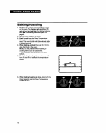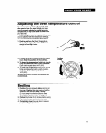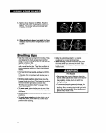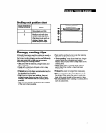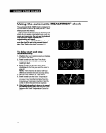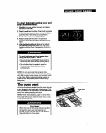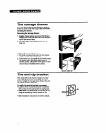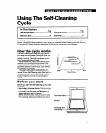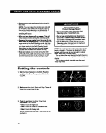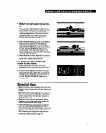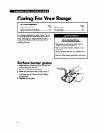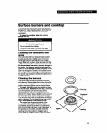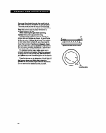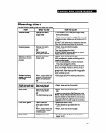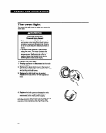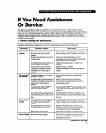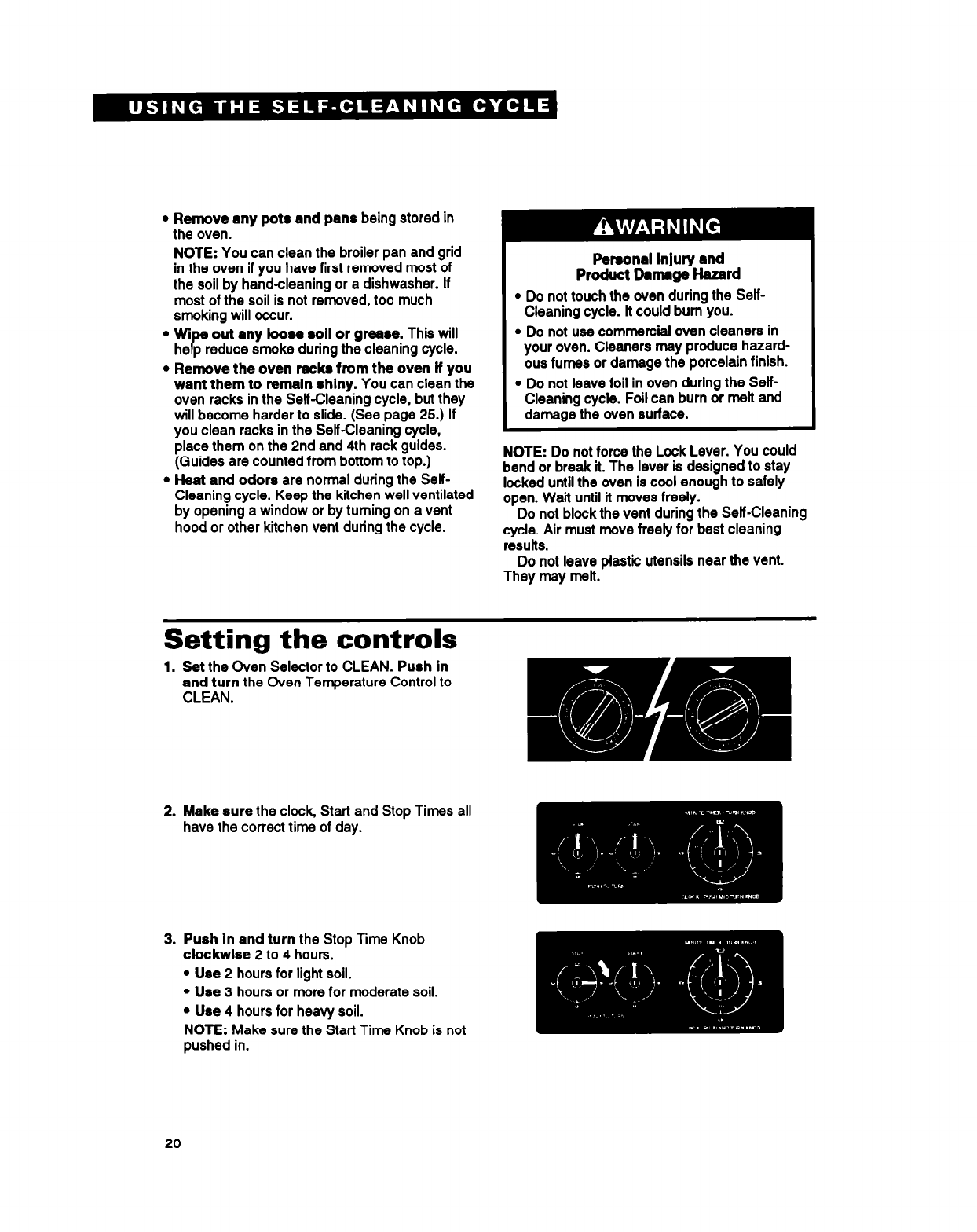
l
Remove any pots and pans being stored in
the oven.
NOTE: You can clean the broiler pan and grid
in the oven if you have first removed most of
the soil by hand-cleaning or a dishwasher. lf
most of the soil is not removed, too much
smoking will occur.
l
Wipe out any loose soil or grease. This will
help reduce smoke during the cleaning cycle.
l
Remove the oven racks from the oven if you
want them to remain shiny. You can clean the
oven racks in the Self-Cleaning cycle, but they
will become harder to slide. (See page 25.) If
you clean racks in the Self-Cleaning cycle,
place them on the 2nd and 4th rack guides.
(Guides are counted from bottom to top.)
l
Heat and odors are normal during the Self-
Cleaning cycle. Keep the kitchen well ventilated
by opening a window or by turning on a vent
hood or other kitchen vent during the cycle.
Personal Injury and
Product Damags Hazard
l
Do not touch the oven during the Self-
Cleaning cycle. ft could bum you.
l
Do not use commercial oven cleaners in
your oven. Cleaners may produce hazard-
ous fumes or damage the porcelain finish.
l
Do not leave foil in oven during the Self-
Cleaning cycle. Foil can burn or melt and
damage the oven surface.
NOTE: Do not force the Lock Lever. You could
bend or break it. The lever is designed to stay
locked until the oven is cool enough to safely
open. Watt until lt moves freely.
Do not block the vent during the Seff-Cleaning
cycle. Air must move freely for best cleaning
results.
Do not leave plastic utensils near the vent.
They may melt.
2. Make sure the clock Start and Stop Times all
have the correct time of day.
3. Push in and turn the Stop Time Knob
clockwise 2 to 4 hours.
l
Use 2 hours for light soil.
l
Use 3 hours or more for moderate soil.
l
Use 4 hours for heavy soil.
NOTE: Make sure the Start Time Knob is not
pushed in.
Setting the controls
1. Set the Oven Selector to CLEAN. Push in
and turn the Oven Temperature Control to
CLEAN.
20



